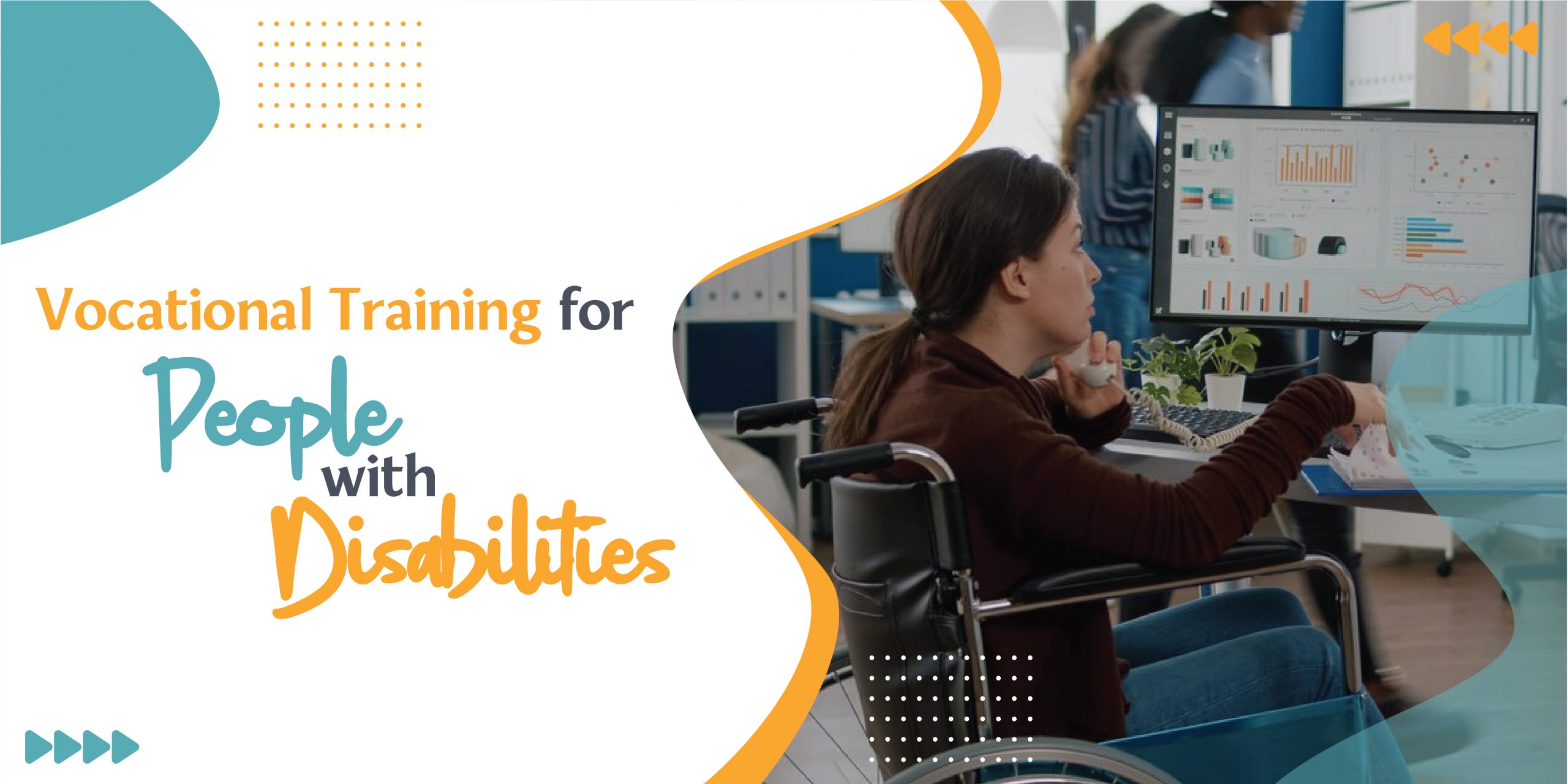Vocational training can be incredibly beneficial for children with disabilities by providing them with the skills and knowledge and confidence required to succeed at the workplace or at home. It involves providing them with experience they need to be productive members of the society. We are enlisting some key considerations to keep in mind when developing vocational training programs for children with disabilities:
Individualized Approach – Each child with a disability has unique needs, skills and interest. Therefore, vocational training should be individualised to meet the needs of each child. This can be achieved by developing a personalized education plan (PEP) that takes into account the child’s strengths, interests and career goals.
Accessible Curriculum The vocational training curriculum should be designed to accommodate the needs of children with disabilities. It should be accessible and easy to understand, and it should provide ample opportunities for hands on learning experiences.
Adaptive Technology: Assistive technology tools can help children with disabilities access and engage with vocational training. Examples of assistive technology includes screen readers, voice recognition software and specialized keyboards.
Collaboration & Partnership: Collaboration & Partnership between schools, employers and community organizations can be instrumental in creating effective vocational training programs for children with disabilities. Such collaboration can help create a more comprehensive and integrated approach to vocational training.
Post Training Support: It’s essential to provide ongoing support to children with disabilities even after they complete their vocational training. This support may include job coaching, mentorship and assistance with job placement.
Provide support and accommodations: Vocational training programs can provide support and accommodations that enable people with disabilities to succeed in the workforce. For example, someone with physical disability may require an ergonomic work station or a sign language interpreter disability may require an ergonomic workstation or a sign language interpreter to effectively communicate with their colleague.
Improve Social Skills: Vocational training can provide people with disabilities, with opportunities to interact with others, improving their social skills and increasing their confidence in social situation. This can be specially important for children with disabilities who may struggle with social interaction.
In summary, vocational training for children with disabilities should be individualized, accessible and designed to meet the unique needs of each child. The use of adaptive technology, collaboration and partnerships and ongoing support are key components of an effective vocational training program. If you are looking for someone who needs Disability Support Durack area feel free to get in touch with Q1 care services. They have been providing support for more than a decade.



